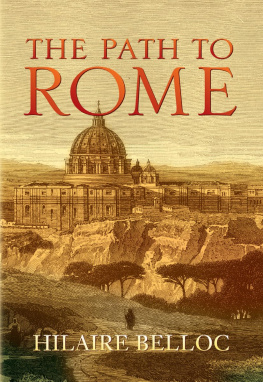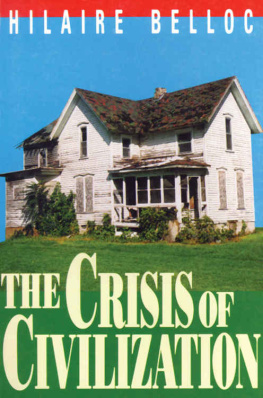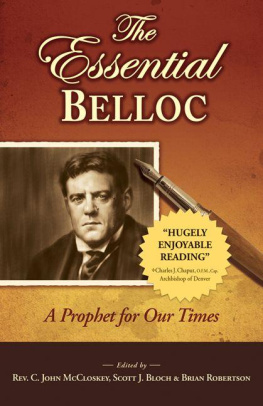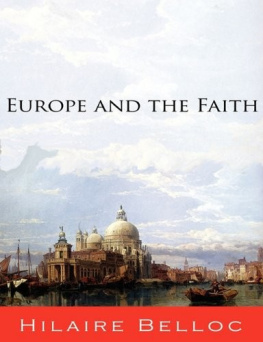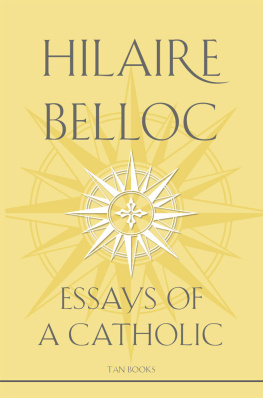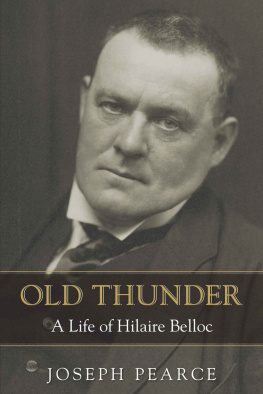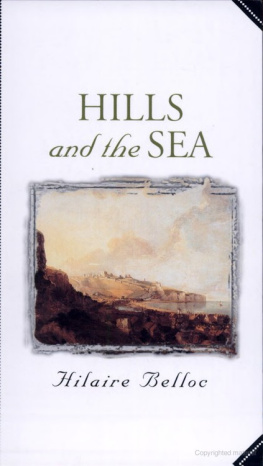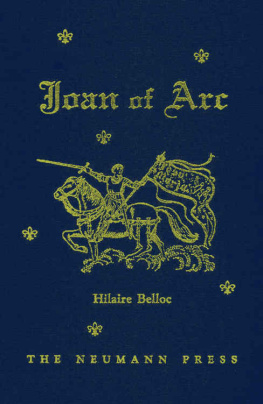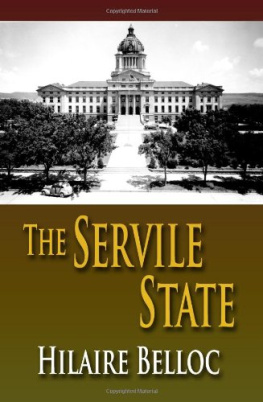Hilaire Belloc - The Path to Rome
Here you can read online Hilaire Belloc - The Path to Rome full text of the book (entire story) in english for free. Download pdf and epub, get meaning, cover and reviews about this ebook. year: 2011, publisher: INscribe Digital;Dover Publications, genre: Science. Description of the work, (preface) as well as reviews are available. Best literature library LitArk.com created for fans of good reading and offers a wide selection of genres:
Romance novel
Science fiction
Adventure
Detective
Science
History
Home and family
Prose
Art
Politics
Computer
Non-fiction
Religion
Business
Children
Humor
Choose a favorite category and find really read worthwhile books. Enjoy immersion in the world of imagination, feel the emotions of the characters or learn something new for yourself, make an fascinating discovery.
- Book:The Path to Rome
- Author:
- Publisher:INscribe Digital;Dover Publications
- Genre:
- Year:2011
- Rating:3 / 5
- Favourites:Add to favourites
- Your mark:
- 60
- 1
- 2
- 3
- 4
- 5
The Path to Rome: summary, description and annotation
We offer to read an annotation, description, summary or preface (depends on what the author of the book "The Path to Rome" wrote himself). If you haven't found the necessary information about the book — write in the comments, we will try to find it.
Hilaire Bellocs best work, The Path to Rome is less concerned with Rome itself than with a pilgrims journey to the Eternal City. A spirited Catholic apologist, Belloc traveled on foot from France, across the Alps and the Apennines in order to see all Europe which the Christian Faith has saved. Includes 77 line drawings.
The Path to Rome — read online for free the complete book (whole text) full work
Below is the text of the book, divided by pages. System saving the place of the last page read, allows you to conveniently read the book "The Path to Rome" online for free, without having to search again every time where you left off. Put a bookmark, and you can go to the page where you finished reading at any time.
Font size:
Interval:
Bookmark:

Bibliographical Note
This Dover edition, first published in 2005, is an unabridged republication of the work originally published by Longmans, Green and Co., New York, and George Allen, London, in 1902.
Library of Congress Cataloging-in-Publication Data
Belloc, Hilaire, 18701953.
The path to Rome / Hilaire Belloc.
p. cm.
Originally published: New York : Longmans, Green and co., 1902.
9780486120898
1. FranceDescription and travel. 2. SwitzerlandDescription and travel. 3. ItalyDescription and travel. I. Title.
D919.B44 2005
914.04'287dc22
2004059364
Manufactured in the United States of America Dover Publications, Inc., 31 East 2nd Street, Mineola, N.Y. 11501
To Miss R. H. Busk
T o every honest reader that may purchase, hire, or receive this book, and to the reviewers also (to whom it is of triple profit), greetingand whatever else can be had for nothing.
If you should ask how this book came to be written, it was in this way. One day as I was wandering over the world I came upon the valley where I was born, and stopping there a moment to speak with them allwhen I had argued politics with the grocer, and played the great lord with the notary-public, and had all but made the carpenter a Christian by force of rhetoricwhat should I note (after so many years) but the old tumble-down and gaping church, that I love more than mother-church herself, all scraped, white, rebuilt, noble and new, as though it had been finished yesterday. Knowing very well that such a change had not come from the skinflint populace, but was the work of some just artist who knew how grand an ornament was this shrine (built there before our people stormed Jerusalem), I entered, and there saw that all within was as new, accurate, and excellent as the outer part; and this pleased me as much as though a fortune had been left to us all; for ones native place is the shell of ones soul, and ones church is the kernel of that nut.
Moreover, saying my prayers there, I noticed behind the high altar a statue of Our Lady, so extraordinary and so different from all I had ever seen before, so much the spirit of my valley, that I was quite taken out of myself and vowed a vow there to go to Rome on Pilgrimage and see all Europe which the Christian Faith has saved; and I said, I will start from the place where I served in arms for my sins; I will walk all the way and take advantage of no wheeled thing; I will sleep rough and cover thirty miles a day, and I will hear Mass every morning; and I will be present at High Mass in St. Peters on the Feast of St. Peter and St. Paul.
Then I went out of the church still having that Statue in my mind, and I walked again farther into the world, away from my native valley, and so ended some months after in a place whence I could fulfil my vow; and I started as you shall hear. All my other vows I broke one by one. For a faggot must be broken every stick singly. But the strict vow I kept, for I entered Rome on foot that year in time, and I heard High Mass on the Feast of the Apostles, as many can testifyto wit: Monsignor this, and Chamberlain the other, and the Bishop of so-and-soopolis in partibus infidelium; for we were all there together.
And why (you will say) is all this put by itself in what Anglo-Saxons call a Foreword, but gentlemen a Preface? Why, it is because I have noticed that no book can appear without some such thing tied on before it; and as it is folly to neglect the fashion, be certain that I read some eight or nine thousand of them to be sure of how they were written and to be safe from generalising on too frail a basis.
And having read them and discovered first, that it was the custom of my contemporaries to belaud themselves in this prolegomenaical ritual (some saying in few words that they supplied a want, others boasting in a hundred that they were too grand to do any such thing, but most of them baritoning their apologies and chanting their excuses till one knew that their pride was toppling over)since, I say, it seemed a necessity to extol ones work, I wrote simply on the lintel of my diary, Praise of this Book, so as to end the matter at a blow. But whether there will be praise or blame I really cannot tell, for I am riding my pen on the snaffle, and it has a mouth of iron.
Now there is another thing book writers do in their Prefaces, which is to introduce a mass of nincompoops of whom no one ever heard, and to say my thanks are due to such and such all in a litany, as though any one cared a farthing for the rats! If I omit this believe me it is but on account of the multitude and splendour of those who have attended at the production of this volume. For the stories in it are copied straight from the best authors of the Renaissance, the music was written by the masters of the eighteenth century, the Latin is Erasmus own; indeed, there is scarcely a word that is mine. I must also mention the Nine Muses, the Three Graces; Bacchus, the Mnads, the Panthers, the Fauns; and I owe very hearty thanks to Apollo.
Yet again, I see that writers are for ever anxious of their style, thinking (not saying)
True, I used and which on page 47, but Martha Brown the stylist gave me leave; or:
What if I do end a sentence with a preposition? I always follow the rules of Mr. Twist in his Tis Thus Twas Spoke, Odds Body an I do not!
Now this is a pusillanimity of theirs (the book writers) that they think style power, and yet never say as much in their Prefaces. Come, let me do so... Where are you? Let me marshal you, my regiments of words!

Rabelais! Master of all happy men! Are you sleeping there pressed into desecrated earth under the doss-house of the Rue St. Paul, or do you not rather drink cool wine in some elysian Chinon looking on the Vienne where it rises in Paradise? Are you sleeping or drinking that you will not lend us the staff of Friar John wherewith he slaughtered and bashed the invaders of the vineyards, who are but a parable for the mincing pedants and bloodless thin-faced rogues of the world?
Write as the wind blows and command all words like an army! See them how they stand in rank ready for assault, the jolly, swaggering fellows!
First come the Neologisms, that are afraid of no man; fresh, young, hearty, and for the most part very long-limbed, though some few short and strong. There also are the Misprints to confuse the enemy at his onrush. Then see upon the flank a company of picked Ambiguities covering what shall be a feint by the squadron of Anachronisms led by old Anachronos himself; a terrible chap with nigglers and a great murderer of fools.
But here see more deeply massed the ten thousand Egotisms shining in their armour and roaring for battle. They care for no one. They stormed Convention yesterday and looted the cellar of Good-Manners, who died of fear without a wound; so they drank his wine and are to-day as strong as lions and as careless (saving only their Captain, Monologue, who is lantern-jawed).
Here are the Aposiopsian Auxiliaries, and Dithyramb that killed Punctuation in open fight; Parenthesis the giant and champion of the host, and Anacoluthon that never learned to read or write but is very handy with his sword; and Metathesis and Hendiadys, two Greeks. And last come the noble Gallicisms prancing about on their light horses: cavalry so sudden that the enemy sicken at the mere sight of them and are overcome without a blow. Come then, my hearties, my lads, my indefatigable repetitions, seize you each his own trumpet that hangs at his side and blow the charge; we shall soon drive them all before us headlong, howling down together to the Pichrocholian Sea.
Font size:
Interval:
Bookmark:
Similar books «The Path to Rome»
Look at similar books to The Path to Rome. We have selected literature similar in name and meaning in the hope of providing readers with more options to find new, interesting, not yet read works.
Discussion, reviews of the book The Path to Rome and just readers' own opinions. Leave your comments, write what you think about the work, its meaning or the main characters. Specify what exactly you liked and what you didn't like, and why you think so.

